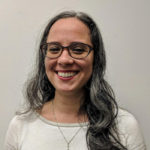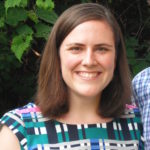 Tim Boerst is a Professor of Clinical Practice at the University of Michigan School of Education. His work supports the development and assessment of beginning teachers who are pedagogically skilled, subject-matter serious, and professionally committed to the learning of every student. He studies and teaches practice-based mathematics methods courses, and leads a number of NSF- and IES-funded projects focused on the design of professional development materials and the assessment of teaching practice. Tim has played a key role in the redesign of UM’s elementary teacher education programs: first as Coordinator of Settings for Teaching and Learning, then as Assessment Coordinator, and now as Chair of the Elementary Teacher Education Program. He also serves on the board of the Association of Mathematics Teacher Educators and on the Certification Council of the National Board for Professional Teaching Standards. Prior to his full-time position at UM, Tim taught in elementary classrooms for 15 years, earning and renewing National Board Certification as a Middle Childhood Generalist. During this time, he held multiple leadership positions in the National Council of Teachers of Mathematics and, for five years, was a Practitioner Scholar with the Center for Proficiency in Teaching Mathematics and the Carnegie Foundation, blending daily classroom teaching, research on practice, and work as a mathematics teacher educator. Tim earned a PhD in Teacher Education and an M.A. in Mathematics Education from the University of Michigan. In 2012, he received the Early Career Award for Distinguished Contributions to Teaching, Service, and Scholarship from the Association of Mathematics Teacher Educators.
Tim Boerst is a Professor of Clinical Practice at the University of Michigan School of Education. His work supports the development and assessment of beginning teachers who are pedagogically skilled, subject-matter serious, and professionally committed to the learning of every student. He studies and teaches practice-based mathematics methods courses, and leads a number of NSF- and IES-funded projects focused on the design of professional development materials and the assessment of teaching practice. Tim has played a key role in the redesign of UM’s elementary teacher education programs: first as Coordinator of Settings for Teaching and Learning, then as Assessment Coordinator, and now as Chair of the Elementary Teacher Education Program. He also serves on the board of the Association of Mathematics Teacher Educators and on the Certification Council of the National Board for Professional Teaching Standards. Prior to his full-time position at UM, Tim taught in elementary classrooms for 15 years, earning and renewing National Board Certification as a Middle Childhood Generalist. During this time, he held multiple leadership positions in the National Council of Teachers of Mathematics and, for five years, was a Practitioner Scholar with the Center for Proficiency in Teaching Mathematics and the Carnegie Foundation, blending daily classroom teaching, research on practice, and work as a mathematics teacher educator. Tim earned a PhD in Teacher Education and an M.A. in Mathematics Education from the University of Michigan. In 2012, he received the Early Career Award for Distinguished Contributions to Teaching, Service, and Scholarship from the Association of Mathematics Teacher Educators.  Meghan Shaughnessy is a teacher educator and researcher at the University of Michigan School of Education whose work focuses on the improvement of elementary mathematics instruction. She develops and studies practice-intensive approaches for developing mathematical knowledge for teaching (MKT) and teaching practices that support student learning and promote equity. She co-directs the NSF-funded Assessing Teaching Practice (@Practice) Project, which creates simulation assessments that assess core teaching practices and MKT. She served as a senior investigator on the Developing Teaching Expertise @ Mathematics Project, an NSF-funded materials-development project that designed practice-focused and mathematics-intensive professional development. Meghan leads the planning group for the undergraduate elementary mathematics methods course at the University of Michigan and mentors graduate students in learning to teach the course. She was also involved in the School of Education’s project to redesign the teacher education program. Since 2005, she has played a key role in the Elementary Mathematics Laboratory, co-designing the instruction with Deborah Ball. In past work, Meghan studied the development of children’s mathematical thinking about hard-to-learn and hard-to-teach topics, such as fractions, and co-wrote the book Beyond Pizzas and Pies: 10 Essential Strategies for Supporting Fraction Sense, published by Math Solutions in 2010. She received a PhD in Mathematics Education from the University of California, Berkeley and a B.A. in Mathematics and Psychology from Wellesley College.
Meghan Shaughnessy is a teacher educator and researcher at the University of Michigan School of Education whose work focuses on the improvement of elementary mathematics instruction. She develops and studies practice-intensive approaches for developing mathematical knowledge for teaching (MKT) and teaching practices that support student learning and promote equity. She co-directs the NSF-funded Assessing Teaching Practice (@Practice) Project, which creates simulation assessments that assess core teaching practices and MKT. She served as a senior investigator on the Developing Teaching Expertise @ Mathematics Project, an NSF-funded materials-development project that designed practice-focused and mathematics-intensive professional development. Meghan leads the planning group for the undergraduate elementary mathematics methods course at the University of Michigan and mentors graduate students in learning to teach the course. She was also involved in the School of Education’s project to redesign the teacher education program. Since 2005, she has played a key role in the Elementary Mathematics Laboratory, co-designing the instruction with Deborah Ball. In past work, Meghan studied the development of children’s mathematical thinking about hard-to-learn and hard-to-teach topics, such as fractions, and co-wrote the book Beyond Pizzas and Pies: 10 Essential Strategies for Supporting Fraction Sense, published by Math Solutions in 2010. She received a PhD in Mathematics Education from the University of California, Berkeley and a B.A. in Mathematics and Psychology from Wellesley College.  Deborah Loewenberg Ball is the William H. Payne Collegiate Professor of education at the University of Michigan, an Arthur F. Thurnau Professor, and the director of TeachingWorks. Ball taught elementary school for more than 15 years, and continues to teach mathematics to elementary students every summer. Her research focuses on the work of teaching mathematics in ways that disrupt the reproduction of inequity and that make it possible for young people to enjoy and engage in mathematics in and out of school. She is an expert on teacher education, and her current work centers on how to improve the quality of beginning teaching.
Ball has authored or co-authored more than 150 publications and has lectured and made numerous major presentations around the world. Her research has been recognized with several awards and honors, and she has served on several national and international commissions and panels focused on policy initiatives and the improvement of education, including the National Mathematics Advisory Panel and the Commission on the Future of Undergraduate Education. She serves on the National Science Board and the Mathematical Sciences Research Institute Board of Trustees, chairs the Spencer Foundation Board of Directors, and is the president-elect of the American Educational Research Association. Ball has been elected to the American Academy of Arts and Sciences and the National Academy of Education, and is a fellow of the American Mathematical Society and the American Educational Research Association. She completed eleven years as dean of the U-M School of Education in June 2016.
Deborah Loewenberg Ball is the William H. Payne Collegiate Professor of education at the University of Michigan, an Arthur F. Thurnau Professor, and the director of TeachingWorks. Ball taught elementary school for more than 15 years, and continues to teach mathematics to elementary students every summer. Her research focuses on the work of teaching mathematics in ways that disrupt the reproduction of inequity and that make it possible for young people to enjoy and engage in mathematics in and out of school. She is an expert on teacher education, and her current work centers on how to improve the quality of beginning teaching.
Ball has authored or co-authored more than 150 publications and has lectured and made numerous major presentations around the world. Her research has been recognized with several awards and honors, and she has served on several national and international commissions and panels focused on policy initiatives and the improvement of education, including the National Mathematics Advisory Panel and the Commission on the Future of Undergraduate Education. She serves on the National Science Board and the Mathematical Sciences Research Institute Board of Trustees, chairs the Spencer Foundation Board of Directors, and is the president-elect of the American Educational Research Association. Ball has been elected to the American Academy of Arts and Sciences and the National Academy of Education, and is a fellow of the American Mathematical Society and the American Educational Research Association. She completed eleven years as dean of the U-M School of Education in June 2016.  Merrie Blunk is a teacher educator and researcher in the School of Education at the University of Michigan. Her research interests focus on teacher preparation and the assessment of mathematical knowledge for teaching. Her recent work includes project management for the @Practice project with Tim Boerst and Meghan Shaughnessy, the Designing an Integrated Assessment System (DIAS) Project with Pamela Moss, the Learning Mathematics for Teaching (LMT) Project with Heather Hill and Deborah Ball, and the online Teacher Knowledge Assessment System (TKAS) designed to administer the measures developed by LMT. She previously worked with Magdalene Lampert and Deborah Ball on the MaTH Project and the MTLT Project, and co-edited a book, Talking Mathematics in School, with Magdalene Lampert. Blunk currently serves as a field instructor for UM’s Elementary Teacher Education Program. She has also taught educational psychology and elementary mathematics methods at the University of Michigan. She received a PhD in Education and Psychology and an M.A. in Cognitive Psychology from the University of Michigan, and a B.A. in Psychology from Calvin College.
Merrie Blunk is a teacher educator and researcher in the School of Education at the University of Michigan. Her research interests focus on teacher preparation and the assessment of mathematical knowledge for teaching. Her recent work includes project management for the @Practice project with Tim Boerst and Meghan Shaughnessy, the Designing an Integrated Assessment System (DIAS) Project with Pamela Moss, the Learning Mathematics for Teaching (LMT) Project with Heather Hill and Deborah Ball, and the online Teacher Knowledge Assessment System (TKAS) designed to administer the measures developed by LMT. She previously worked with Magdalene Lampert and Deborah Ball on the MaTH Project and the MTLT Project, and co-edited a book, Talking Mathematics in School, with Magdalene Lampert. Blunk currently serves as a field instructor for UM’s Elementary Teacher Education Program. She has also taught educational psychology and elementary mathematics methods at the University of Michigan. She received a PhD in Education and Psychology and an M.A. in Cognitive Psychology from the University of Michigan, and a B.A. in Psychology from Calvin College.  Erin Pfaff is a postdoctoral research fellow at the University of Michigan School of Education. She designs and studies the role of simulated teaching experiences on classroom mathematics discourse. In addition to the @Practice project, Erin works on the Organizing to Learn Practice (O2LP) Project at the University of Michigan. She holds a PhD in Mathematics & Science Education from Vanderbilt University, where she studied as an IES Predoctoral Fellow. Erin taught mathematics methods courses for both undergraduates and Urban Masters students during her time at Vanderbilt. Prior to graduate school, Erin taught kindergarten, first, and second grade in Nashville, TN. She holds a B.A. in both Mathematics and Elementary Education from Vanderbilt University.
Erin Pfaff is a postdoctoral research fellow at the University of Michigan School of Education. She designs and studies the role of simulated teaching experiences on classroom mathematics discourse. In addition to the @Practice project, Erin works on the Organizing to Learn Practice (O2LP) Project at the University of Michigan. She holds a PhD in Mathematics & Science Education from Vanderbilt University, where she studied as an IES Predoctoral Fellow. Erin taught mathematics methods courses for both undergraduates and Urban Masters students during her time at Vanderbilt. Prior to graduate school, Erin taught kindergarten, first, and second grade in Nashville, TN. She holds a B.A. in both Mathematics and Elementary Education from Vanderbilt University.  D’Anna Pynes is a postdoctoral research fellow at the University of Michigan School of Education. Her research focuses on mathematics teacher learning, teacher noticing of children’s mathematical thinking, professional development design, and learning opportunities in teacher collaboration. In addition to the @Practice Project, D’Anna works on the Organizing to Learn Practice (O2LP) Project at the University of Michigan. She holds a Ph.D. in STEM Education from The University of Texas at Austin, where she participated as a graduate research assistant for the NSF-funded Responsive Teaching in Elementary Mathematics (RTEM) Project. In addition, D’Anna taught mathematics methods courses for undergraduate students. Prior to graduate school, D’Anna taught kindergarten, third, and fifth grade in Central Texas, and served as a district and regional professional development and curriculum specialist. She holds a B.S. in Applied Learning and Development from The University of Texas at Austin.
D’Anna Pynes is a postdoctoral research fellow at the University of Michigan School of Education. Her research focuses on mathematics teacher learning, teacher noticing of children’s mathematical thinking, professional development design, and learning opportunities in teacher collaboration. In addition to the @Practice Project, D’Anna works on the Organizing to Learn Practice (O2LP) Project at the University of Michigan. She holds a Ph.D. in STEM Education from The University of Texas at Austin, where she participated as a graduate research assistant for the NSF-funded Responsive Teaching in Elementary Mathematics (RTEM) Project. In addition, D’Anna taught mathematics methods courses for undergraduate students. Prior to graduate school, D’Anna taught kindergarten, third, and fifth grade in Central Texas, and served as a district and regional professional development and curriculum specialist. She holds a B.S. in Applied Learning and Development from The University of Texas at Austin.  Susanna Farmer is a doctoral candidate in the School of Education at University of Michigan. She studies the role that shared instructional resources (e.g., lesson plans, student materials) play in creating opportunities for collective work on teaching and how curriculum materials can be designed to be usable and useful to teachers as they interact with students. Her dissertation investigates how six second-grade teachers work with curriculum materials to teach project-based social studies and literacy. Susanna works on the @Practice Project, helping to develop, validate, and administer simulation assessments. She has also been a member of the elementary mathematics methods planning group at UM and has taught the “Children as Sense-Makers” course in the elementary teacher education program. Prior to graduate school, Susanna taught first and third grade in Nashville, TN. She has a bachelor’s degree in elementary education from Vanderbilt University and a master’s degree in early and middle childhood education from Ohio State.
Susanna Farmer is a doctoral candidate in the School of Education at University of Michigan. She studies the role that shared instructional resources (e.g., lesson plans, student materials) play in creating opportunities for collective work on teaching and how curriculum materials can be designed to be usable and useful to teachers as they interact with students. Her dissertation investigates how six second-grade teachers work with curriculum materials to teach project-based social studies and literacy. Susanna works on the @Practice Project, helping to develop, validate, and administer simulation assessments. She has also been a member of the elementary mathematics methods planning group at UM and has taught the “Children as Sense-Makers” course in the elementary teacher education program. Prior to graduate school, Susanna taught first and third grade in Nashville, TN. She has a bachelor’s degree in elementary education from Vanderbilt University and a master’s degree in early and middle childhood education from Ohio State.  Rosalie DeFino is a first-year doctoral student in mathematics education at the University of Michigan. Her research interests include understanding the knowledge, beliefs, and experiences that enable elementary teachers to teach mathematics in ways that both honor children’s development and help them construct understanding through discussion, multiple representations, and problem solving. She is also interested in studying the intersections of culturally responsive pedagogy and teaching mathematics for equity and justice. Prior to enrolling at the University of Michigan, Rosalie taught 5th grade math in Chicago for five years. She also worked as a writer on the fourth edition of Fifth Grade Everyday Mathematics. She earned a bachelor’s degree in Philosophy, as well as a master’s in teaching from the University of Chicago.
Rosalie DeFino is a first-year doctoral student in mathematics education at the University of Michigan. Her research interests include understanding the knowledge, beliefs, and experiences that enable elementary teachers to teach mathematics in ways that both honor children’s development and help them construct understanding through discussion, multiple representations, and problem solving. She is also interested in studying the intersections of culturally responsive pedagogy and teaching mathematics for equity and justice. Prior to enrolling at the University of Michigan, Rosalie taught 5th grade math in Chicago for five years. She also worked as a writer on the fourth edition of Fifth Grade Everyday Mathematics. She earned a bachelor’s degree in Philosophy, as well as a master’s in teaching from the University of Chicago.  Xueying Ji Prawat was a postdoctoral fellow in the School of Education at the University of Michigan from 2016 to 2018. Her research focuses on teaching and learning to teach, and connecting math and the real world. In addition to the @Practice project, Xueying worked on the Organizing to Learn Practice (O2LP) Project at the University of Michigan and has been involved in research projects on teacher education at Michigan State University, UCLA, and ETS. She also taught elementary mathematics methods and mentored secondary mathematics interns at Michigan State University. Prior to graduate school, she was a middle school math teacher in Shanghai, China. She received a Ph.D. in Curriculum, Instruction, and Teacher Education from Michigan State University; her M.A. in Education, specializing in mathematics education; and a B.S. in Mathematics from the East China Normal University in Shanghai, China.
Xueying Ji Prawat was a postdoctoral fellow in the School of Education at the University of Michigan from 2016 to 2018. Her research focuses on teaching and learning to teach, and connecting math and the real world. In addition to the @Practice project, Xueying worked on the Organizing to Learn Practice (O2LP) Project at the University of Michigan and has been involved in research projects on teacher education at Michigan State University, UCLA, and ETS. She also taught elementary mathematics methods and mentored secondary mathematics interns at Michigan State University. Prior to graduate school, she was a middle school math teacher in Shanghai, China. She received a Ph.D. in Curriculum, Instruction, and Teacher Education from Michigan State University; her M.A. in Education, specializing in mathematics education; and a B.S. in Mathematics from the East China Normal University in Shanghai, China.  Emily Theriault-Kimmey is a doctoral student in mathematics education at the University of Michigan. She is passionate about equity in mathematics education, and her research interests include the study and development of teaching practices that support equitable mathematics instruction. Emily continues to teach elementary school mathematics in an effort to study, from the inside, the problems and dilemmas that practicing teachers face. She is a 2012 recipient of the Presidential Award for Excellence in Mathematics and Science Education, in the area of mathematics instruction. Emily has served as an educator in the Ann Arbor Public Schools since 1998. She has held multiple leadership positions including Lead Teacher, a position akin to vice principal. Emily has served on her building Equity Team, the Collaborative Action Research for Equity Team, and the Ann Arbor Public Schools Mathematics and Science Advisory Committees. In these capacities, she has worked to develop curriculum and instruct professional development courses in mathematics and science. Emily’s interest in and commitment to teacher preparation has led her to serve as a mentor teacher for teaching interns in her elementary classroom, and as an instructor for graduate students at the University of Michigan. Emily has a B.A. in psychology and an M.A. in education both from the University of Michigan.
Emily Theriault-Kimmey is a doctoral student in mathematics education at the University of Michigan. She is passionate about equity in mathematics education, and her research interests include the study and development of teaching practices that support equitable mathematics instruction. Emily continues to teach elementary school mathematics in an effort to study, from the inside, the problems and dilemmas that practicing teachers face. She is a 2012 recipient of the Presidential Award for Excellence in Mathematics and Science Education, in the area of mathematics instruction. Emily has served as an educator in the Ann Arbor Public Schools since 1998. She has held multiple leadership positions including Lead Teacher, a position akin to vice principal. Emily has served on her building Equity Team, the Collaborative Action Research for Equity Team, and the Ann Arbor Public Schools Mathematics and Science Advisory Committees. In these capacities, she has worked to develop curriculum and instruct professional development courses in mathematics and science. Emily’s interest in and commitment to teacher preparation has led her to serve as a mentor teacher for teaching interns in her elementary classroom, and as an instructor for graduate students at the University of Michigan. Emily has a B.A. in psychology and an M.A. in education both from the University of Michigan.